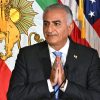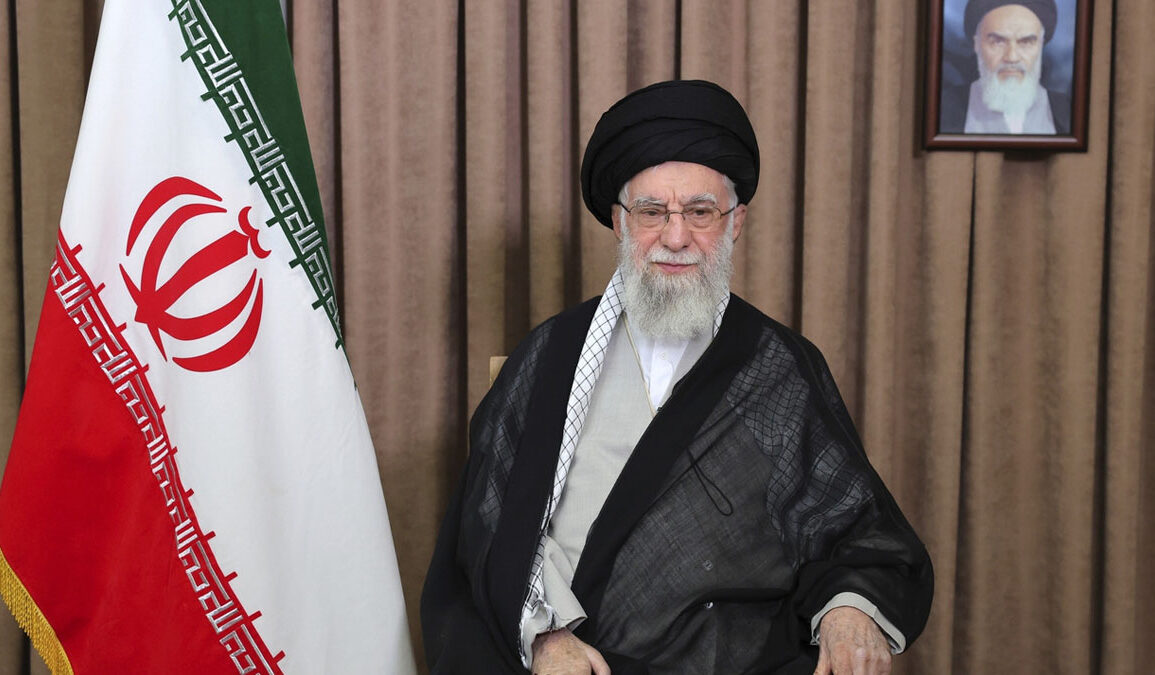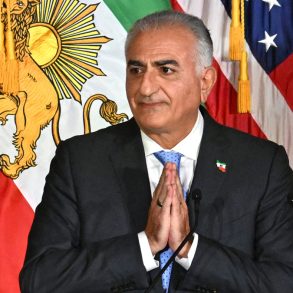The war between Israel and Iran has entered a dangerous new phase. For the fourth straight day, Israeli fighter jets have struck targets deep inside Iranian territory, including nuclear facilities, military command centers, and critical energy infrastructure. This military campaign follows years of threats from Tehran, including repeated promises from Iran’s Supreme Leader Ayatollah Ali Khamenei to wipe Israel off the map.
Despite having many chances in the past to choose diplomacy, Iran has instead pursued uranium enrichment, supported proxy militias like Hezbollah and the Houthis, and launched attacks on Israel and Western interests. Now, with its military leaders dead or scattered and Israeli planes flying unchallenged over its capital, Tehran is urgently signaling that it wants to talk.
Iran’s Messages to the World
According to The Wall Street Journal, Iran has been reaching out through Arab intermediaries—including Qatar, Oman, and Saudi Arabia—to deliver messages to both Israel and the United States. Tehran says it wants a ceasefire and is willing to return to nuclear talks. However, it is also asking that the United States stay out of the conflict.
“The Iranians know the U.S. is supporting Israel in its defense, and they are sure the U.S. is supporting Israel logistically,” an Arab official told the Journal. “But they want guarantees the U.S. won’t join the attacks.”
Tehran has also asked its allies in the Gulf to press President Trump to influence Israel. Reuters reported that “Tehran has asked Trump’s allies in Qatar, Saudi Arabia, and Oman to press Trump’s influence on Israel for an immediate ceasefire in return for Tehran’s flexibility in nuclear negotiations.”
One Iranian source said, “Iran is willing to be flexible in the nuclear talks if a ceasefire is reached.” But there are no signs yet that Iran is offering meaningful concessions. As Arab intermediaries explained, Iran has not agreed to stop uranium enrichment, and continues to fund armed groups across the region.
Trump’s Reaction: Deal or No Deal?
President Trump has not ignored Iran’s signals. Speaking on Truth Social, Trump said, “Iran and Israel should make a deal, and will make a deal, just like I got India and Pakistan to make, in that case by using TRADE with the United States to bring reason, cohesion, and sanity into the talks with two excellent leaders who were able to quickly make a decision and STOP!”
He added, “Many calls and meetings now taking place. I do a lot, and never get credit for anything, but that’s OK, the PEOPLE understand. MAKE THE MIDDLE EAST GREAT AGAIN!”
In an interview with The Wall Street Journal, Trump also confirmed he knew in advance about Israel’s airstrikes and revealed that he vetoed an Israeli plan to assassinate Ayatollah Khamenei. That decision suggests he wants to avoid total collapse in Iran, even while supporting Israel’s right to defend itself.
Israel Shows No Signs of Backing Down
Despite international pressure, Israeli Prime Minister Benjamin Netanyahu has been clear that the campaign will continue until Iran’s nuclear and missile programs are destroyed. Netanyahu stated that Israel is not seeking regime change, but admitted that it could be a natural outcome of the current war, given the weakness and isolation of the Iranian leadership.
Israel has already killed much of the top command of Iran’s air force and has struck Quds Force command centers in Tehran. “The IDF said the command centers in Tehran were used to direct proxy groups of the Iranian regime to launch terrorist attacks against Israel,” the Israeli Defense Forces posted on X.
According to officials cited by The Wall Street Journal, Israeli jets now operate over Tehran with “air superiority,” and Israeli military leaders believe they have the upper hand. “Tehran appears to be betting that Israel can’t afford to get stuck in a war of attrition,” said one Arab diplomat who had spoken with Iranian officials. “But Israel has prepared for at least two more weeks of airstrikes,” Israeli sources told the paper.
A Ceasefire, or Just a Pause to Regroup?
Israeli and Western analysts remain deeply suspicious of Iran’s sudden desire to talk. Newsmax noted that calls for a ceasefire, especially from groups like Hamas or regimes like Iran, are often just a way to pause military pressure and give their forces time to regroup.
“The timing of Iran’s proposal to talk is telling,” one security official told Newsmax. “They’ve suffered heavy losses, and now they want to negotiate from a position of weakness. That’s not diplomacy—that’s survival.”
So far, Israel has killed at least 224 Iranians, according to Iran’s Health Ministry, and Iran’s missile attacks have killed 24 Israelis, including eight civilians killed overnight. The scale of damage inside Iran has been severe, especially to its air force and energy sector, but analysts say Israel has not yet crippled Iran’s deeply buried nuclear facilities.
Iran also warned through Arab channels that if talks do not resume soon, it may accelerate its nuclear program and expand the war. One Arab official said, “Iran has told Arab officials it could expand the scope of the war if there are no prospects of resuming talks with the U.S.”
Gulf States and Global Reactions
Arab nations are worried the conflict will spiral out of control. “The Gulf States are deeply concerned the conflict will spin out of control,” one Gulf source told Reuters. “Qatar, Oman, and Saudi Arabia have all appealed to Washington to press Israel to agree to a ceasefire and to resume talks with Tehran.”
European leaders are also calling for calm. French President Emmanuel Macron urged Iran to “return swiftly to the negotiating table to reach an agreement.” Meanwhile, G7 leaders have drafted a joint statement that recognizes Israel’s right to defend itself and rejects Iran’s path toward a nuclear weapon. “Trump has not yet signed off on the statement,” Newsmax’s Alex Salvi reported.
Though the U.S. has not directly entered the fighting, it is making moves. The USS Nimitz aircraft carrier strike group is now heading toward the Middle East, ahead of schedule, to join the USS Carl Vinson. This deployment is symbolic. The Nimitz took part in the failed 1980 Operation Eagle Claw hostage rescue mission in Tehran. Its return signals Washington’s readiness—if necessary—to escalate.
Logan Ratick of Newsmax confirmed the movement of U.S. carriers and noted that their presence may pressure Iran further, even without American bombs being dropped.
News of Iran’s willingness to talk had an immediate impact on global markets. Oil prices dropped sharply. Brent crude fell 3.8% to $71.41 a barrel, and West Texas Intermediate dropped 3.3% to $70.55. Stocks rose sharply, with the Dow up 460 points and the S&P 500 gaining 1.1%, as investors welcomed any sign of reduced risk in the Middle East.
Too Little, Too Late?
After years of threats, uranium enrichment, and violence, Iran is now asking for peace. But this sudden shift, coming only after its leadership has taken major losses and Israeli airstrikes have reached the heart of Tehran, seems more like a desperate delay than a sincere change of heart.
NP Editor: It is tough to judge the actions of a government that is tyrannical and heartless and doesn’t care about the welfare of its people. Iran is getting pounded by a compassionate Iran that refuses to target the civilian population, so the war is less real to the people of Iran, compared to, for example, Ukraine, where populations have been targeted and hundreds of thousands have died.
This will be a tough nut.








